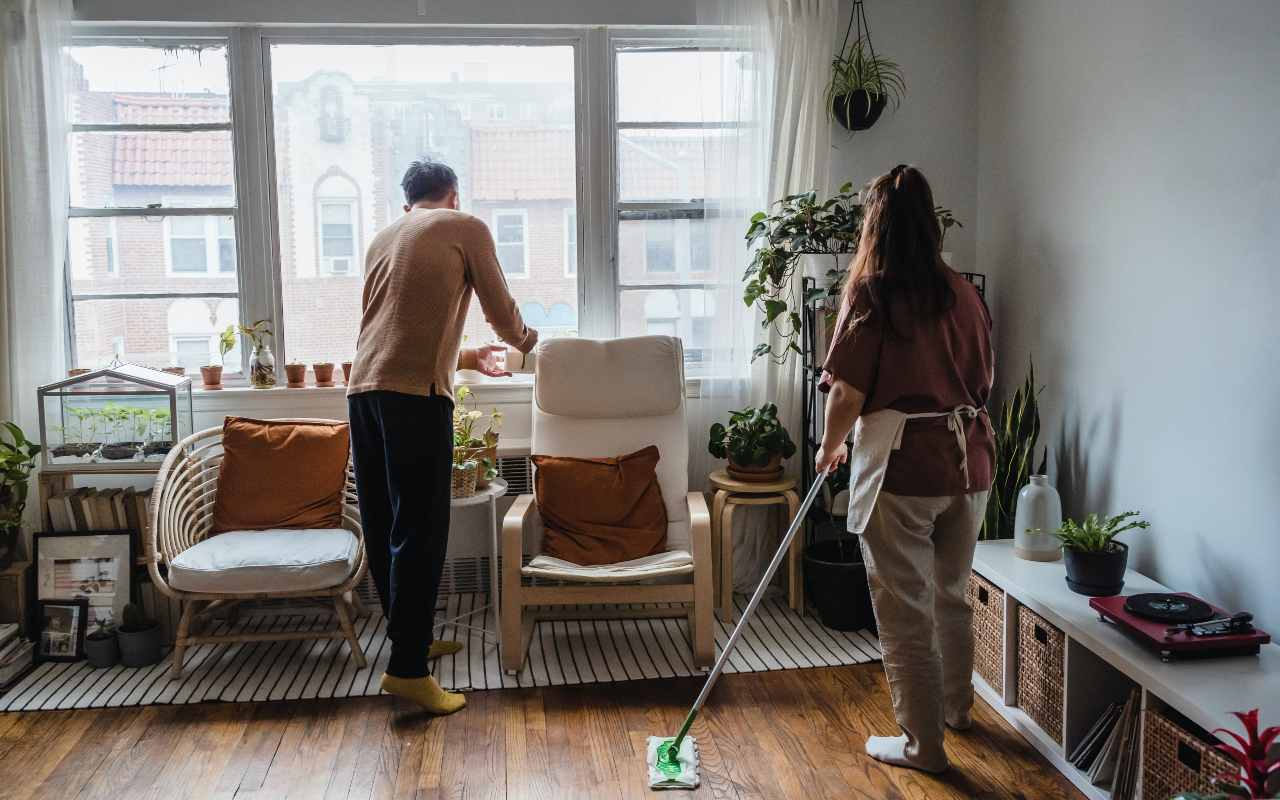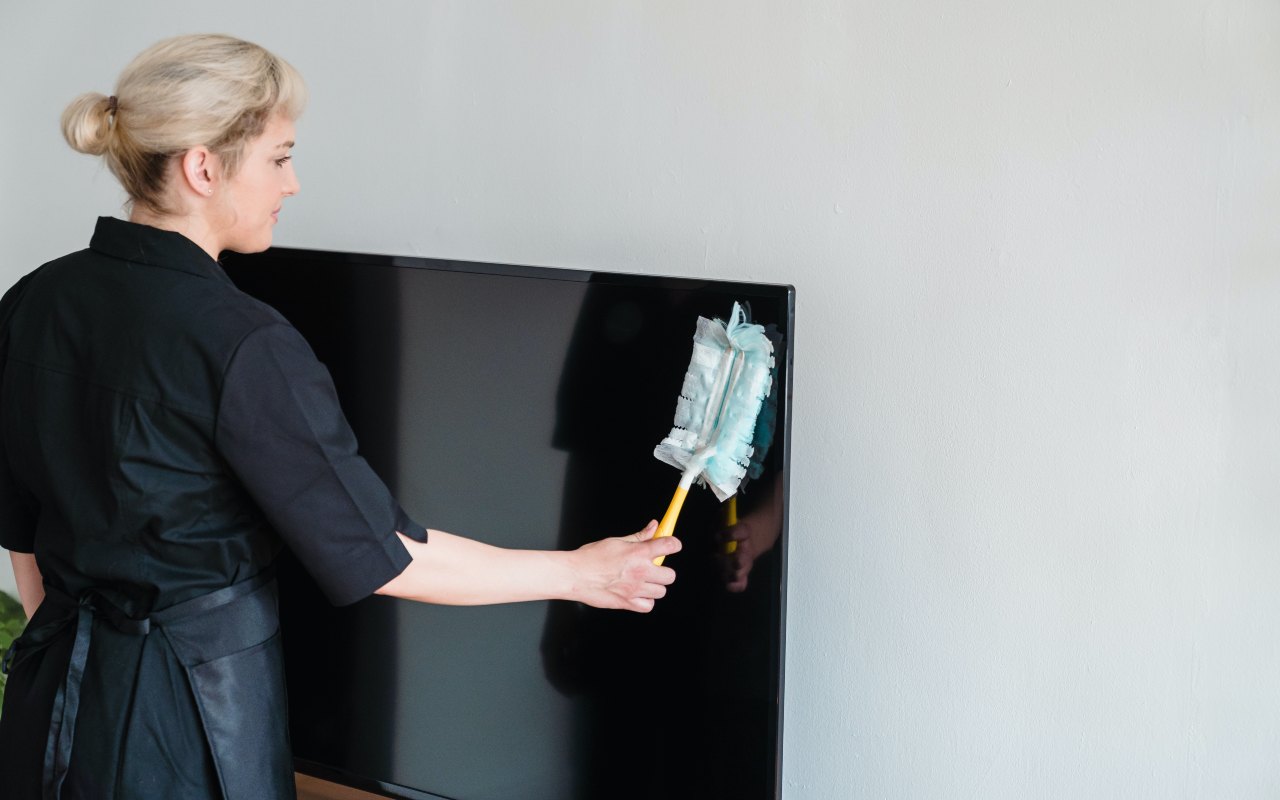
How to Improve Indoor Air Quality?
How to improve indoor air quality is a question that is becoming increasingly important to homeowners, office managers, and health-conscious individuals around the world. With a surge of information about the health implications of poor indoor air, this question warrants our attention more than ever.
The air we breathe significantly impacts our health, productivity, and overall quality of life, both at home and in the workplace.
In this blog post, you will understand the concept of indoor air quality and find practical, easy-to-implement tips and strategies to enhance it. Whether you are looking to improve air quality in your home naturally or seeking ways to boost indoor air quality in your office, this guide will equip you with essential knowledge and practical tips!
What is Indoor Air Quality?
What is indoor air quality you might ask. In essence, indoor air quality (IAQ) refers to the condition of air within our living or working spaces. It’s about how clean or polluted the air is, and how it impacts our health and comfort.
It is immensely important since it directly affects our health. We spend most of our time indoors, so the quality of the air we breathe can either enhance our well-being or cause health problems, ranging from minor discomfort to severe respiratory conditions.
Various factors influence indoor air quality. These include environmental conditions, building ventilation, the presence of indoor pollutants such as dust and allergies, and activities within the building like cooking or smoking. We will examine these factors and provide strategies to control them effectively.

How to Improve Air Quality in Home?
The first step to improving air quality is to identify the signs of poor air quality in your home. Recognizing these symptoms can help you take protective steps to enhance your living environment.
What Are the Symptoms of Poor Air Quality in a House?
Poor indoor air quality often presents through a variety of signs and symptoms. You might need to start improving air quality if you or your family members frequently experience:
- Persistent headaches, fatigue, and dizziness.
- Allergic reactions, including sneezing, itchy eyes, or a runny nose.
- Worsening asthma or other respiratory issues.
- A persistent cough or sore throat.
- Skin irritations or rashes.
These symptoms can be especially pronounced after spending long periods indoors and may ease upon leaving the house. Prolonged exposure to poor air quality can lead to severe health conditions, making it essential to improve air quality as early as possible. How to get better air quality in house is crucial to maintain our overall health and well-being.

How to Improve Air Quality in Home Naturally?
There are many ways to improve IAQ in a natural way. These are some things you can do to enhance the air quality in your home.
Regularly Clean Your Home
Regular cleaning is a simple yet effective way to maintain IAQ. By regularly dusting, vacuuming, and mopping, you can significantly reduce the amount of dust, pet dander, and other allergens in your home. Ensuring clean surfaces and floors can help you breathe easier and improve overall air quality.
Control Humidity Levels
Controlling humidity levels is crucial in improving air quality. High humidity promotes the growth of mold and mildew, which can worsen respiratory conditions. By using dehumidifiers or air conditioners, and ensuring proper ventilation in high-humidity areas you can maintain optimal humidity and prevent mold growth in air ducts.
Increase Ventilation
A simple way to improve IAQ at home naturally is to enhance ventilation. Increased airflow can dilute and disperse indoor pollutants, leading to cleaner air. Simple actions like opening windows, using exhaust fans, or installing trickle vents can go a long way in improving indoor ventilation.

Maintain a Clean HVAC System
A clean HVAC system plays a pivotal role in improving indoor air quality. Regular HVAC coil cleaning ensures efficient operation and reduces the likelihood of circulating dust and allergens. Similarly, dryer vent cleaning can prevent potential fire hazards and improve the efficiency of your machine.
Use Air Purifiers and Filters
Air purifiers and specialized air filters can help reduce airborne pollutants, including dust, pet dander, and even bacteria. Technologies such as UV air sterilization can further enhance air quality by eliminating airborne microorganisms.
Indoor Plants
Indoor plants can contribute significantly to improving indoor air quality. Many plant species can absorb harmful toxins and release fresh oxygen, serving as natural air purifiers.
In Addition to their detoxifying abilities, plants also add humidity to the indoor environment, creating a healthier, more breathable atmosphere.
Eliminate Smoking
Finally, one of the most effective ways to improve IAQ is to eliminate smoking indoors. Secondhand smoke carries over 4,000 chemicals, many of which are hazardous to health. By creating a smoke-free environment, you can dramatically improve the air quality in your home.
By implementing these strategies, you can significantly improve the indoor air quality in your home, office, or apartment, leading to healthier living spaces. Engaging the services of professionals for maintaining your systems is key to healthy indoor environments. Miami, amongst various other locations, offers exceptional air duct cleaning services. Whether your abode is a cozy apartment or a bustling office, professional services like air duct cleaning in Miami can effectively ensure your spaces are replete with fresh, clean air.

How to Improve Indoor Air Quality in Office
You might also wonder how to improve IAQ in the office since offices have a unique set of challenges when it comes to preserving the air quality. Given the amount of time most individuals spend at work, understanding how to improve the quality of air in the office becomes crucial for our health and productivity.
- Optimize Office Layout: Pay attention to where printers, photocopiers, and other high-emission devices are located. Position them in well-ventilated areas to minimize exposure to pollutants.
- Building Maintenance: Regular building maintenance including checks for mold, water leaks, and timely repairs can significantly improve indoor air quality.
- HVAC System Maintenance: In office settings, HVAC systems often have to cater to larger spaces and operate for extended periods. Regular maintenance of these systems is critical to ensuring efficient operation and improved air quality.
- Eco-Friendly Cleaning Products: Encourage the use of eco-friendly cleaning products. Traditional cleaning supplies often contain harsh chemicals that can impact air quality.
- Adopt a Green Office Policy: Encourage employees to go digital to reduce the amount of paper dust in the office. Additionally, promoting a smoke-free environment is essential to maintain good air quality.
- Invest in Air Quality Monitoring: Regular monitoring of air quality can help identify issues early and take necessary steps for improvement.
These are some steps on how to improve air quality in the office, and a healthier working environment can also increase productivity and job satisfaction among employees.
Maintaining excellent IAQ is not merely a luxury – it’s essential to our health, well-being, and overall quality of life. Whether you’re seeking to enhance the air you breathe within your home, in an apartment, or looking to create a more healthful environment in your office space, it requires ongoing attention and effort.
Each environment presents its unique set of challenges and, as such, requires its distinct set of solutions. For instance, in an apartment, it might mean using eco-friendly cleaning products or incorporating indoor plants to naturally purify the air. In office spaces, it might involve regular maintenance of HVAC systems, optimizing office layout, and adopting green policies.
It’s important to remember that improving indoor air quality is a continual process. As our environments change, so too will the strategies we need to employ to maintain the purity of the air we breathe. By staying informed and proactive, we can create healthier, more comfortable spaces, irrespective of whether we’re at home, in an apartment, or at the office!

